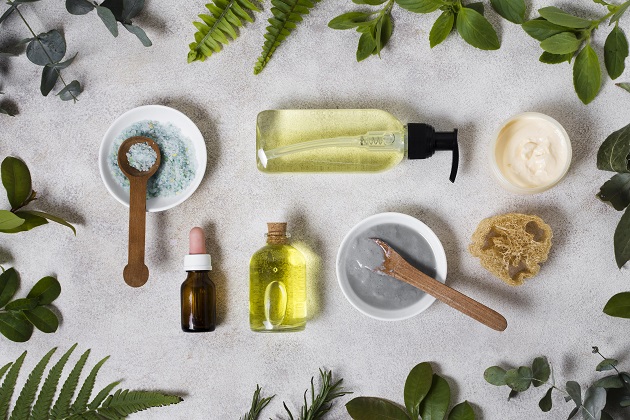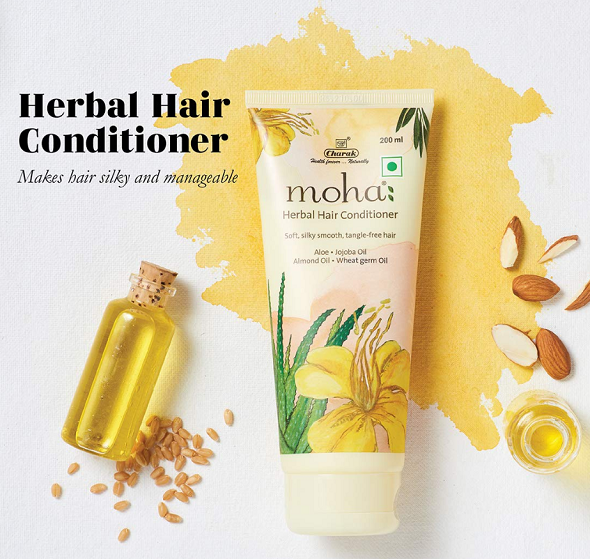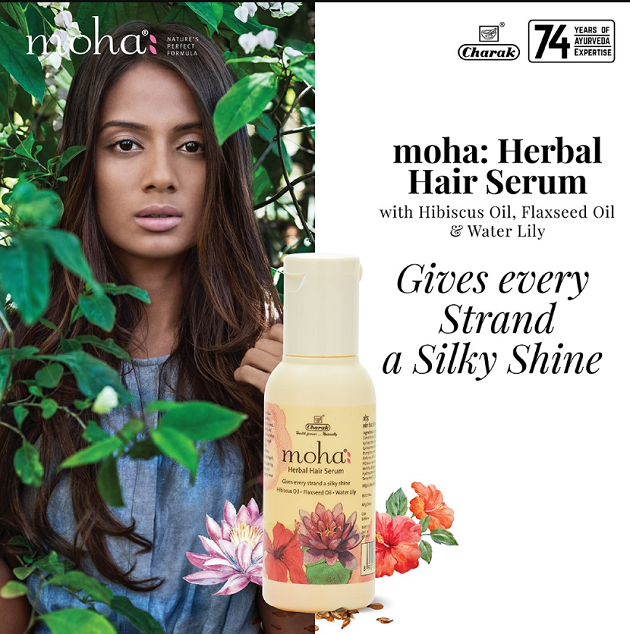
Every individual is born with a unique hair quality which according to Ayurveda depends on your Prakriti or constitution. According to Ayurveda, Vata, Pitta, Kapha are the three doshas i.e. body humor that decide one’s prakriti or body constitution. Each dosha has specific attributes that impart peculiar characteristics not just to your skin and hair but also to your body structure, digestion, sleep and behavior.
Multiple combinations of these doshas and their dominance lead to different hair types that we see around. Hair care also differs according to different hair types. Let’s understand different hair types according to Ayurvedic prakriti and their hair care routine.
Characteristics of Hair in Vata Dominant Constitution:
People with Vata dominant constitution naturally have very thin, dry, rough and sparse hair. Their hair is more prone to breakage and damage. These people commonly suffer from split ends, frizzy hair, dry scalp and dandruff.
Hair Care Tips:

- People with Vata dominant constitution should include oiling with coconut oil, almond oil or sesame oil in their hair care routine. Oiling must be done at least twice a week by gently massaging the scalp and applying oil to the hair strands from root to tip.
- A diet should include coconut, sesame seeds, cow ghee, walnuts, almonds, warm water, and warm foods. Deep-fried, spicy, dried foods and cold beverages should be avoided.
- Exposure to cold air and harsh chemicals can cause excessive dryness of hair. Use of herbal conditioner such as moha: Herbal Hair conditioner after hair wash can help to protect your hair from drying and maintain hair softness & luster.
Characteristics of Hair in Pitta Dominant constitution:
People with Pitta dominant constitution have soft, thin & light-colored hair. These people tend to sweat more which can lead to itchy scalp. They are more prone to suffer from premature graying of hair, split ends and hair fall.
Hair Care Tips:
- Regular oiling with coconut oil, amla oil or Brahmi oil, etc. is beneficial for people with Pitta dominant constitution. Application of hair masks made of coconut paste, amla powder or rice water may help to cleanse and nourish the scalp.
- A diet should include cow milk, cow ghee, coconut, sweet & ripe fruits, etc. Intake of sour, spicy, salty and fermented foods should be avoided.
- It is necessary to avoid frequent use of chemicals & heat treatments with blow dryers, styling irons, etc. and prolonged exposure to the sun.
Hair characteristics of Kapha Dominant Constitution:
People with Kapha dominant constitution have thick, dense, dark-colored and curly hair. Their hair strands are thicker and stronger compared to other constitutions. They may suffer from oily, itchy scalp and dandruff.
Hair Care Tips:

- Oiling the scalp and hair with sesame oil, mustard oil, bhringaraj oil or argon oil, etc. could be beneficial. The application of hair packs made from triphala powder can also be useful to maintain a healthy scalp and strengthen hair roots in people with Kapha dominant constitution.
- The diet should include barley, buttermilk, honey, spices and warm foods. Excessive intake of bakery products and fatty foods should be avoided.
- Use of a good herbal hair serum like moha: Herbal Hair Serum on pre-washed damp hair in your hair care routine can help to manage hair and keep frizz away.
It is important to understand that there could be different combinations of dominant doshas in different individuals leading to different hair types. With years of research from Ayurveda experts, we bring to you vedistry: 5 in 1 hair oil enriched with the goodness of coconut oil, almond oil, jojoba oil, rosemary oil, sesame oil, hibiscus oil, argan oil which is a perfect blend suited for all hair types that will help you nourish & maintain gorgeous healthy hair always!
Disclaimer: This content including advice provides generic information only. It is in no way a substitute for a qualified medical opinion. Always consult your doctor if suffering from any disease. Vedistry Pvt. Ltd. does not claim responsibility for this information.